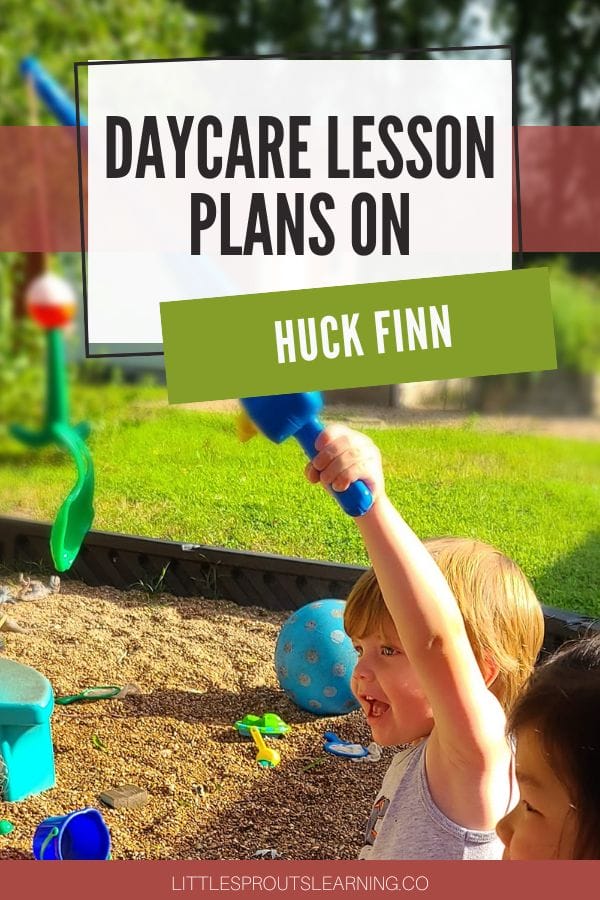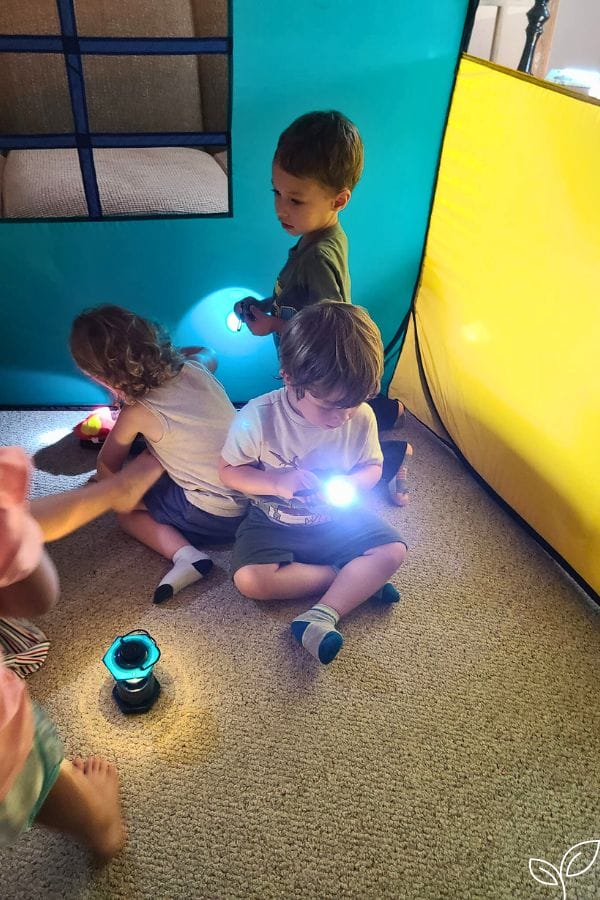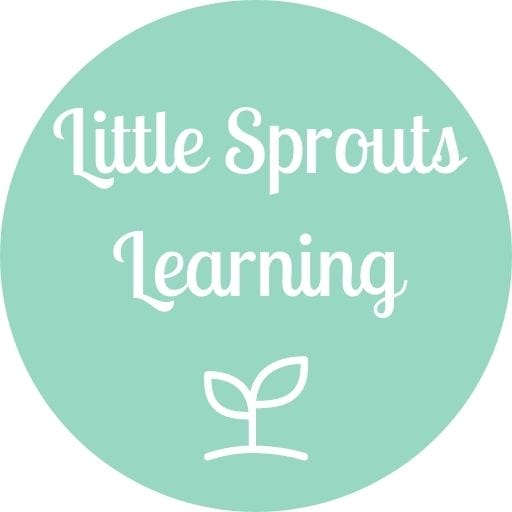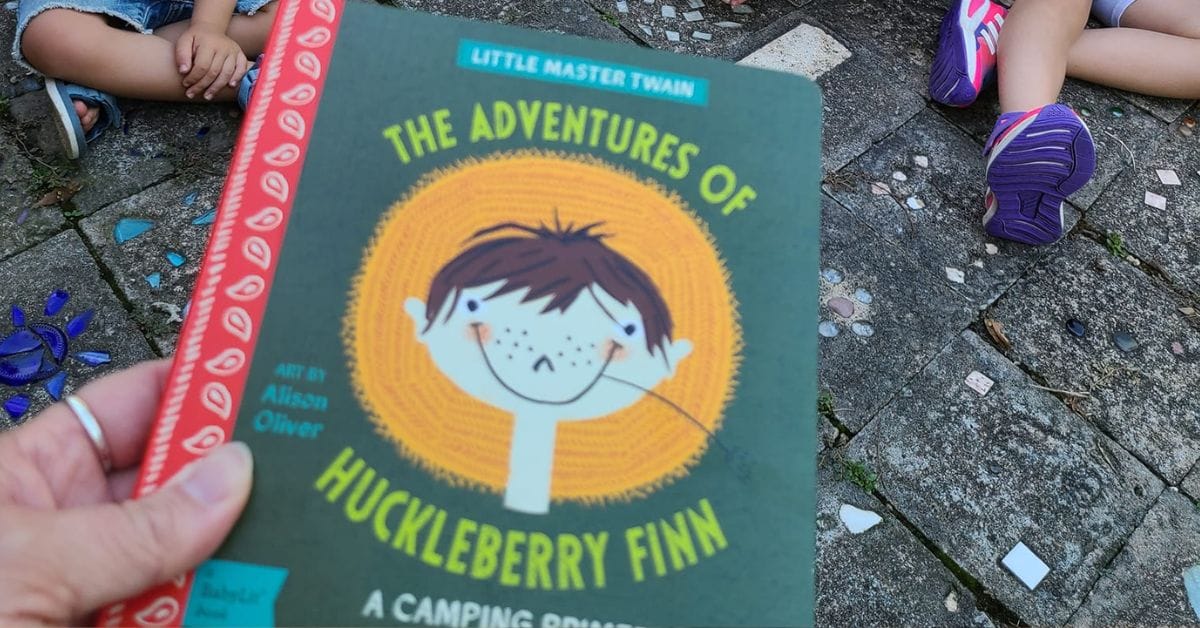Daycare Lesson Plans on Huck Finn
This page may contain affiliate links. Learn More.
When planning home daycare lesson plans around classic literature like Mark Twain’s “The Adventures of Huckleberry Finn,” it’s important to adapt the material to be age-appropriate and engaging for young children. These daycare lesson plans on Huck Finn are perfect for kids ages 1-5 and older. They teach great concepts and they are fun!

Huck Finn offers rich themes of friendship, adventure, and the importance of questioning societal norms. However, due to its complex language and themes, direct reading may not be suitable.
Instead, focusing on simplified stories inspired by the adventures of Huck and his friends can capture the imagination of young learners. The lesson plans can include creative storytelling, character role-play, and crafts that bring the 19th-century setting to life.
This approach not only introduces children to a cornerstone of American literature but also fosters an early appreciation for storytelling, critical thinking, and empathy. And it can be a great part of a reading celebration day as well. Try this Best Classic Literature Themed Tea Party for Daycare too!
When I create unique lesson plans for my home daycare, I like to start with a book. Now Huck Finn in its original form is not age-appropriate for my kids, so I got this baby-lit version of Huck Finn that teaches concepts about camping, food, and friendship.
Classic Literature for Preschool
I want to send my kids out into the world as well-rounded individuals. I like to expose them to literature, drama, painting, sculpture, music of all kinds, dance, and everything that I possibly can. I love enriching learning through using the classics.
Teaching classic literature to preschoolers offers several valuable benefits, both educationally and developmentally:
- Language Development: Classic literature is rich in vocabulary and complex sentence structures compared to contemporary children’s books. Exposure to this type of language can enhance a child’s verbal skills and linguistic understanding.
- Cultural Knowledge: Classic stories often contain themes and references that are part of cultural literacy. Introducing these at a young age can help children understand and connect with various cultural references as they grow.
- Moral Lessons: Many classic tales convey moral and ethical lessons. Classic stories often teach lessons about honesty, bravery, and kindness. These can help instill valuable life lessons in a relatable way for young children.
- Imagination and Creativity: Classic literature often involves fantastical elements, whimsical characters, and intriguing plots that can stimulate a child’s imagination and creativity more intensely than many modern texts designed for children.
- Emotional Intelligence: Through stories, children learn to empathize with characters in different situations, which can enhance their emotional understanding and empathy. This emotional connection can help preschoolers navigate their own feelings and relationships.
- Foundation for Future Learning: Early exposure to complex narratives and themes can prepare children for more advanced reading and comprehension as they progress in their education. It sets a strong foundation for a lifelong love of reading.
- Family Bonding: Many classic stories are familiar to parents and grandparents, and sharing these stories can become a cherished family activity, enhancing bonds and creating shared experiences.
By selecting age-appropriate versions of these classics, educators and parents can provide children with a rich, engaging, and beneficial early literary experience.
For a printable version of the lesson plans on Huck Finn including supply list and Oklahoma ELGs, click here.
Lesson Plans for Huck Finn
Introducing a complex novel like “The Adventures of Huckleberry Finn” to preschoolers requires a significantly adapted approach, focusing more on the basic elements of the story and its simpler moral lessons. The content should be very basic, avoiding the novel’s complex themes of race and social criticism. Instead, the focus can be on friendship, adventure, and exploring new places.
Here’s a basic framework for a preschool lesson plan centered around themes that are approachable for very young children:
Introduction to Huckleberry Finn
- Story Time: Read from a simplified picture book version of “Huckleberry Finn.”
- Discuss the characters: Huck and his friends. Focus on their traits, like Huck being adventurous and caring.

The Concept of Adventure
- Adventure walk: Take the children on a walk outside (even if just to the playground) to go on a “mini-adventure.”
- Discuss what it feels like to go on an adventure and what we might discover.
Exploring the River
- Show pictures of the Mississippi River and discuss different things you can do on a river (like fishing, swimming, and boating).
- Water play: Use a water table to simulate river activities. If you don’t have one, a plastic tote will work.
Building a Raft
- Craft time: Help children build their own small “rafts” from craft sticks and paper. They can float these in a water tray or water table. You could also build a life-size raft from pool noodles and tape. Kids could stand on it and pretend to push it down a river with sticks.
- Role-playing: Use the rafts for a pretend river journey in the classroom.

Camping Play
- Set up a tent and give the kids some lanterns or flashlights
- Talk about what you do when you go camping and act it out. You could pretend you are fishing or making smores. The concept of sleeping outside in a tent is fun. You can set the tent up inside or outside.


Fishing Activity
- Set up a fishing activity
- Let kids use plastic fish or even make a pole with a magnet and have paper fish with paper clips on the end for kids to “catch”. Use what you have available.
- Let kids take turns fishing.

Huck Finn Picnic
- Explore some of the food from the novel such as bacon, fish, and corn. Kids love to eat outside. Pack their lunch up in a bag so they can adventure and eat where they are.

Friendship
- Circle time discussion on how Huck helps and cares for his friends.
- Friendship activity: Pair children up to work on a simple task together, emphasizing cooperation and kindness. This could be building a block tower, making bracelets, or whatever you have the supplies on hand for.
Should Huck Finn be taught in schools?
The question of whether “The Adventures of Huckleberry Finn” by Mark Twain should be taught in schools is a topic of ongoing debate. “Huckleberry Finn” is noted for its innovative use of vernacular speech, narrative style, and development of a distinctly American literary voice. Studying it can enhance students’ understanding of literary techniques and traditions.
The book explores profound themes such as moral integrity, the hypocrisy of “civilized” society, the corrupting forces of power, and the individual’s quest for freedom. These themes are universal and enduring, providing rich material for classroom discussions.
But, younger students might lack the historical context and maturity to understand the satire and complexity of the novel, leading to misunderstandings of its themes and intentions. It’s up to you to use your best judgment in your classroom.
For more great ideas on unique daycare lesson plans, check these out:
- Daycare Lesson Plans on Picasso
- Daycare Lesson Plans on “Anne of Green Gables”
- Daycare Lesson Plans on Shakespeare
- Daycare Lesson Plans on “The Very Busy Spider”
- Daycare Lesson Plans on “Goodnight Moon”
- Daycare Lesson Plans on Frida Kahlo
- Daycare Lesson Plans on “The Secret Garden”
- Caterpillar and Butterfly Theme for Preschool
- Daycare Lesson Plans on Wuthering Heights
- Dental Health Theme for Preschool
- Daycare Lesson Plans on Jackson Pollock
- Here are some great ideas for Home Daycare Curriculum
Here are a ton more helpful printables you can get to make your business easier!
And more helpful tools for providers here. I wish I would have had access to these years ago, they are such a blessing!







